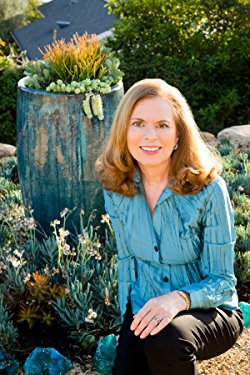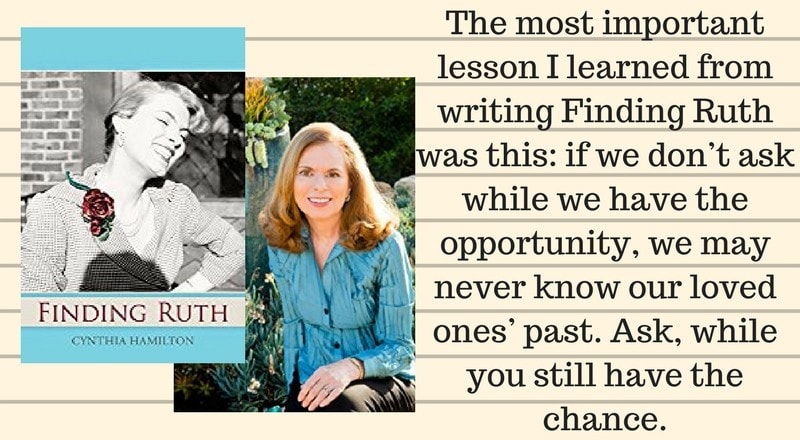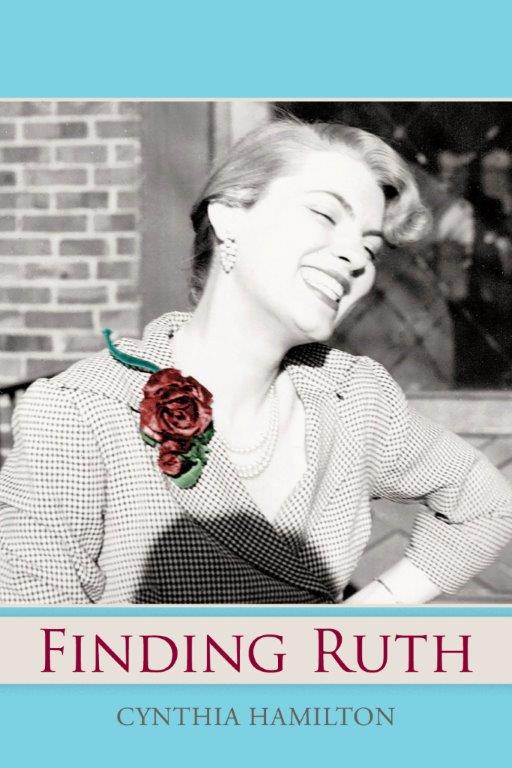It took a life-altering crisis to make me realize that despite having known my mom for 50+ years, I didn’t know who she was as a person in her own right. I had firsthand knowledge of many of her trials and heartaches, but that only gave me a one-sided view of what her life had been like, with many gaps.
Nothing I knew about her had prepared me for what I found prior to her move into a nursing home. In the process of rummaging through eight decades of possessions, I came across an old photo album under her bed. As I opened it, an insert slid out, revealing a photo taken when she was 19 years old. The sight of her hamming it up for the photographer, so happy and confident, completely knocked me for a loop. Who was this person? Why didn’t I know anything about that time in her life? How could I know so little about my own mother?
That stunning photo haunted me. On one level, I was so proud of her, the way I had been as a child. Her beauty and kind nature attracted people to her like a magnet. But on another, deeper level, I was troubled by the fact that the promise of a wonderful future had not been fulfilled. On a purely clinical level, I wondered what had propelled her from point A to point B.
But it was too late to ask. My mother’s mind had been hijacked by Alzheimer’s. She had reached the point where the simplest tasks were beyond her. Making sure she was taking her medication and eating something had been my upmost worries. What I had not realized was that something very precious was being lost as the disease ravaged her brain. Whatever her hopes and dreams were back in 1949, they were completely lost now.
At the same time, a scene from my childhood began flashing across my mind, a scene I hadn’t thought of in many years. But as I relived standing by my siblings, watching through the window while our mother smashed our dishes to the floor, the shock and anxiety I remembered feeling all those years ago was replaced by curiosity. What prompted that isolated fit of rage?
After my mom’s move, I felt compelled to understand what her life had been like from her viewpoint. I turned detective, combing every resource to tie together what I knew with the facts I could unearth to create a timeline going back to her first husband.

What I had when it was finished was not a book about Alzheimer’s or how to navigate it, but more a tribute to a very strong woman. What I learned about her while writing it made me love her even more, despite our rocky past. The unexpected upside to having Alzheimer’s was the loss of all my mom’s painful memories. She has nothing but love in her heart now, and I’m so grateful that she will leave this life in peace.
The most important lesson I learned from writing Finding Ruth was this: if we don’t ask while we have the opportunity, we may never know our loved ones’ past.
Ask, while you still have the chance.
– Find Cynthia on Twitter
– Visit Cynthia’s Website, cynthiahamiltonbooks.com
– Find Cynthia Hamilton Books on Facebook




3 Responses
It is wonderful to have so many people — especially daughters — sharing these stories. What a treasure!
Sounds like a fascinating read, Cynthia! Best wishes to you.
Curiosity is a powerful tool and in your case seems to have given you fantastic insights and an understanding. Good luck with the book!